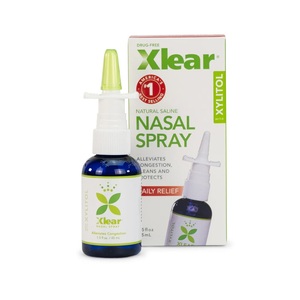Understanding Nasal Spray, Sinus Rinse, and Sinus Health: A Complete Guide
Cuerpo
Whether caused by allergies, colds, or other environmental factors, these conditions can significantly impact day-to-day life. Over the years, methods like using a nasal spray or sinus rinse have proven effective in relieving nasal discomfort and improving breathing. In this blog, we will explore how these methods work, their benefits, and when to use them—especially for children.
The Role of the Nasal Passage
The nasal passage is responsible for filtering, warming, and humidifying the air we breathe. When it functions properly, it protects the lungs from irritants and pathogens. However, various factors such as allergens, dust, viruses, and pollutants can irritate the nasal lining, leading to swelling and mucus build-up. This often results in a blocked nose and discomfort, making even simple tasks like breathing and sleeping difficult.
What is Nasal Spray?
A nasal spray is a liquid medication that is sprayed into the nose to relieve congestion and other symptoms. There are different types, including saline sprays, steroid sprays, and decongestant sprays. Saline sprays are non-medicated and often recommended for regular use, even in children. They help moisten the nasal passage and remove allergens and irritants.
Steroid sprays, on the other hand, reduce inflammation and are usually prescribed for chronic issues like allergic rhinitis. Decongestant sprays provide quick relief from a blocked nose but should be used with caution as overuse may lead to dependency and worsening symptoms.
Understanding Sinus Rinse
A sinus rinse involves flushing the nasal passages with a saline solution. This technique is particularly useful in clearing out mucus, allergens, and bacteria. The process helps reduce inflammation and improves airflow. It is widely recommended for people suffering from chronic sinus problems or after exposure to allergens.
A sinus rinse can be done using a neti pot, squeeze bottle, or a bulb syringe. The saline solution should be sterile and properly mixed to avoid any irritation. Many people find this method effective in preventing infections and improving breathing quality.
Special Considerations for Children
Children are more sensitive to nasal issues because their airways are smaller and more easily blocked. A blocked nose in kids can lead to difficulty sleeping, irritability, and feeding problems in infants. It’s essential to choose appropriate methods for relief.
A kids nasal spray, usually a gentle saline solution, is ideal for providing relief without introducing strong medications. These sprays are designed with child-friendly nozzles and pressure controls to ensure safety and comfort. They help in loosening mucus and keeping the nasal passages clean.
Avoid using decongestant sprays in children without medical advice, as they may have side effects or lead to worsening symptoms when overused.
Sinus Health and Hygiene
Maintaining sinus health is crucial for overall respiratory well-being. Simple habits like staying hydrated, using a humidifier, and keeping your living space free of allergens can significantly reduce the chances of developing sinus-related issues. Practicing good hygiene, such as washing hands regularly and avoiding exposure to pollutants, also helps in keeping the nasal passages clean.
Using a nasal spray or performing a sinus rinse regularly can be a proactive way to ensure nasal hygiene, especially during allergy season or when air pollution levels are high.
When to Seek Medical Advice
While home remedies like saline sprays and rinses are effective for many, it's important to consult a healthcare professional if symptoms persist for more than 10 days, worsen over time, or are accompanied by fever, facial pain, or swelling. These could be signs of a more serious sinus infection or other underlying conditions that may require medical treatment.
Conclusion
Understanding how to care for your nasal passages through tools like nasal spray, and managing a blocked nose can significantly improve quality of life. Maintaining good sinus health is not just about treating symptoms but also about prevention and daily care.





Comentarios